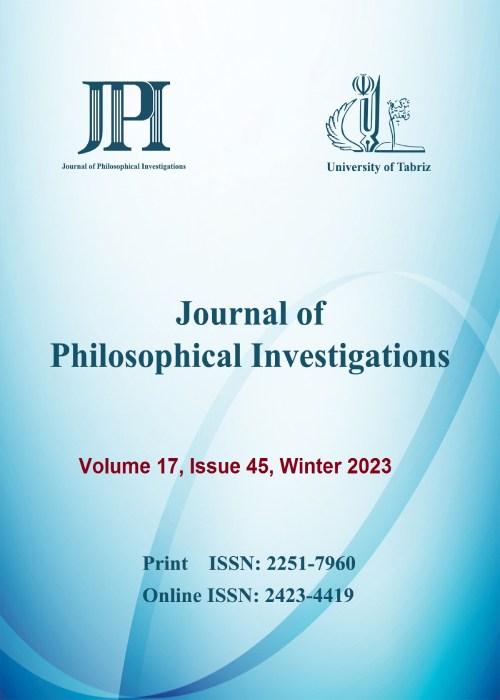The Hypothesis of Theism and the Principle of Simplicity
Author(s):
Article Type:
Research/Original Article (دارای رتبه معتبر)
Abstract:
This paper is a reflection on Richard Swinburne's view on the hypothesis of theism, a view that claims to be the most probable explanation of the universe and tries to prove this claim by appealing to the principle of simplicity; The principle which states that the simpler hypothesis will be more probable to be true. Hence, he argues that since the subject of the hypothesis is a single and infinite God, and the notion of infinity is simpler than the notion of finite and also the hypothesis which contains fewer components will be simpler, therefore, this hypothesis will be simpler than any explanatory hypothesis (personal and scientific). Because the subjects of the other rival hypotheses are either finite or contain more than one component, then this hypothesis (the hypothesis of theism) can be regarded as the most probable explanation of the universe. In the following, we will try to demonstrate that if we take this claim epistemologically, the hypothesis of theism will be considered as the most complicated hypothesis. But the infinite can be considered simpler than the finite only ontologically.
Keywords:
Language:
Persian
Published:
Philosophical Investigations, Volume:14 Issue: 31, 2020
Pages:
479 to 500
magiran.com/p2153462
دانلود و مطالعه متن این مقاله با یکی از روشهای زیر امکان پذیر است:
اشتراک شخصی
با عضویت و پرداخت آنلاین حق اشتراک یکساله به مبلغ 1,390,000ريال میتوانید 70 عنوان مطلب دانلود کنید!
اشتراک سازمانی
به کتابخانه دانشگاه یا محل کار خود پیشنهاد کنید تا اشتراک سازمانی این پایگاه را برای دسترسی نامحدود همه کاربران به متن مطالب تهیه نمایند!
توجه!
- حق عضویت دریافتی صرف حمایت از نشریات عضو و نگهداری، تکمیل و توسعه مگیران میشود.
- پرداخت حق اشتراک و دانلود مقالات اجازه بازنشر آن در سایر رسانههای چاپی و دیجیتال را به کاربر نمیدهد.
In order to view content subscription is required
Personal subscription
Subscribe magiran.com for 70 € euros via PayPal and download 70 articles during a year.
Organization subscription
Please contact us to subscribe your university or library for unlimited access!


